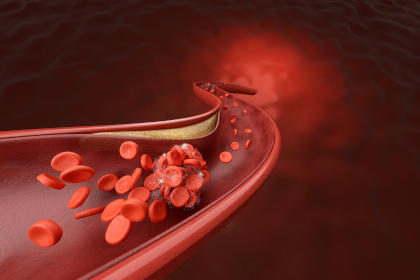Did you know that hyperlipidemia or abnormal levels of fats in the blood increase the risk of heart attack and stroke? This condition affects around 34 million people globally.
Medbox: Never Sort Medications Again
Cholesterol (fat) is required by our body for various functions, like building the cell membrane structure, repairing and building body tissue, producing vitamin D and fat-soluble hormones, and more.
Our body naturally produces some fats (cholesterol), and we get the rest from our diet.
However, excessive amounts of cholesterol in the body can cause hard cholesterol deposits to build up in the blood vessels, obstructing blood flow to the entire body. This is sometimes referred to as atherosclerosis. When atherosclerosis affects the blood vessels supplying the heart, it is called coronary artery disease.
So, what causes hyperlipidemia or excessive blood cholesterol, and how can we prevent it? Let’s find out in detail.
What Is Hyperlipidemia?
Hyperlipidemia is the abnormal levels of cholesterol (lipids), a type of fat (waxy substance), in your blood. It is also known as dyslipidemia.
Hyperlipidemia is when you have a total cholesterol level above 240 mg/dl in your blood (200 – 240 mg/dl is borderline high). A high level of other types of cholesterol (lipids), like LDL and triglyceride, may also indicate hyperlipidemia.
There are three major types of cholesterol or lipids found in the body:
- Triglycerides: Triglycerides are the most common type of bad cholesterol in the body. High levels of triglycerides are risky and increase the chances of heart disease. Patients who are overweight or obese frequently have abnormal levels of triglycerides.
- LDL (low-density lipoprotein): This is the most dangerous type of bad cholesterol. LDL promotes the buildup of plaques in the arteries and increases the risk of stroke and heart disease.
- HDL (high-density lipoprotein) cholesterol: HDL is also known as good cholesterol. Our body needs more good cholesterol as it helps eliminate bad cholesterol and reduces the risk of heart disease. Ideally, you want to keep your HDL level above 40 mg/dl.
What Are the Symptoms of Hyperlipidemia?

A high cholesterol or hyperlipidemia doesn’t show any specific signs and symptoms.
Consistent high cholesterol may lead to the formation and buildup of plaques (hardened cholesterol) in the arteries.
If the condition worsens, the plaque buildup can reduce blood flow and supply to the body, leading to heart attack or stroke. It can also increase your risk for peripheral vascular disease and carotid artery disease.
Types of Hyperlipidemia
There are two main types of hyperlipidemia, which are discussed below:
Primary Hyperlipidemia
Primary hyperlipidemia is a type that is present by birth due to genetic factors.
Secondary Hyperlipidemia
This is the most common type of hyperlipidemia. Secondary hyperlipidemia occurs from an underlying cause, like diabetes that is not controlled or managed, unhealthy diet or lifestyle, obesity, hypothyroidism, or medications like glucocorticoids or HIV meds.
Get Your Pills Pre-sorted and Delivered at No Extra Cost
Causes
The possible causes of hyperlipidemia may include:
- High-fat diet
- Smoking
- Physical inactivity
- Being obese or overweight
- Diabetes
- Sedentary lifestyle
- Genetic causes
- Excessive alcohol use
- Stress
- Medications, such as steroids, diuretics, beta-blockers, or HIV medicines
Diagnosis
The diagnosis of hyperlipidemia is done through a lipid profile or lipid panel blood test that measures the amount of total cholesterol in your blood.
The lipid profile test measures the levels of triglycerides, cholesterol, HDL, and LDL in your blood and compares it with the normal values.
A lipid profile test requires fasting for 12 hours before taking the test.
Your doctor may discuss with you about whether you need to be treated in any of the following cases:
- A triglyceride level of higher than 300 mg/dl
- A total cholesterol level higher than 240 mg/dl or more
- An LDL level of higher than 160 mg/dl or more
Treatment
The treatment of hyperlipidemia includes lifestyle modifications and medications.
The medications given include statins, fibrates, or PCSK9 inhibitors, depending on the patient’s cholesterol levels.
The lifestyle modifications for treating or preventing hyperlipidemia or lowering blood cholesterol levels include:
- Losing weight if you are overweight or obese
- Limiting alcohol and smoking
- Engaging in regular physical exercise
- Eating low trans-fat and saturated-fat foods
- Eating fruits and vegetables
- Consuming foods that contain fiber and omega-3
- Limiting sugary drinks and consuming low-fat milk


